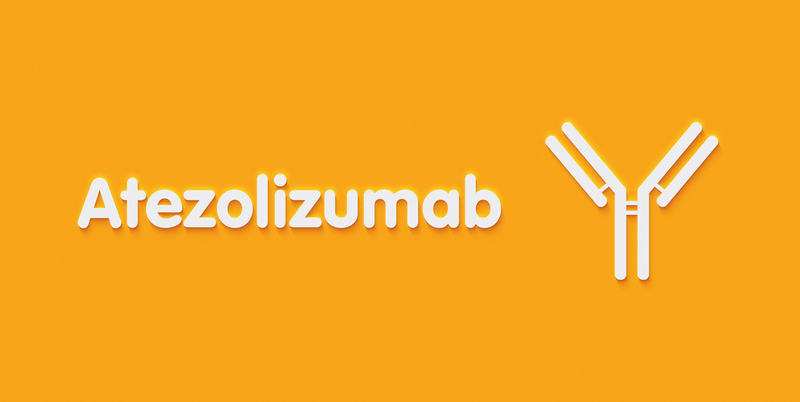Atezolizumab boosts survival in metastatic nonsquamous NSCLC: NEJM
M3 Global Newsdesk Sep 10, 2018
The concomitant use of atezolizumab with bevacizumab plus chemotherapy as first-line treatment improved survival measures for nonsquamous metastatic non-small cell lung cancer (NSCLC) patients, according to a recent study published in the New England Journal of Medicine.

“The efficacy of atezolizumab may be enhanced through the addition of bevacizumab to reverse VEGF-mediated immunosuppression,” wrote authors, co-led by Mark A. Socinski, MD, Florida Hospital Cancer Institute, Orlando, Florida. Bevacizumab plus chemotherapy is currently approved for the treatment of metastatic nonsquamous NSCLC. Bevacizumab exerts antiangiogenic effects and exhibits immunomodulatory effects by inhibiting vascular endothelial growth factor (VEGF).
Atezolizumab is a programmed death ligand 1 (or PD-L1) blocking antibody, which has been shown to increase overall survival benefit in patients with previously treated metastatic NSCLC despite PD-L1 expression. Furthermore, this immunotherapy has demonstrated efficacy and acceptable safety when added to platinum doublet chemotherapy in patients who have not been administered chemotherapy for NSCLC.
“In the IMpower150 study, we asked two questions,” the researchers wrote. “Does VEGF blockade enhance the efficacy of immunotherapy, and does immunotherapy combine effectively with chemotherapy? We addressed the first question by evaluating the effect of adding atezolizumab to the combination of bevacizumab and chemotherapy, and the second by assessing the effect of replacing bevacizumab with atezolizumab in the combination with chemotherapy.”
In the current open-label phase 3 study, chemotherapy-naïve patients with stage IV or recurrent metastatic nonsquamous NSCLC were randomized in a 1:1:1 ratio to the following three groups, for treatment every 3 weeks for either four or six 21-day cycles:
- Atezolizumab plus carboplatin plus paclitaxel (ACP group; n=402)
- Bevacizumab plus carboplatin plus paclitaxel (BCP group; n=400)
- Atezolizumab plus bevacizumab plus carboplatin plus paclitaxel (ABCP; n=400)
After these four or six cycles, the patients were placed on maintenance therapy with atezolizumab, bevacizumab, or both. The team stratified this randomization by sex, presence of liver metastases at baseline, and PD-L1 tumor expression.
The two primary endpoints for this study were:
- Progression-free survival among the intention-to-treat population who harbored a wild-type (WT) phenotype and did not exhibit EGFR or ALK genetic alterations, along with progression-free survival among the WT population who expressed effector T-cell (Teff) gene signature in the tumor
- Overall survival in the WT population. Of note, high Teff gene signature expression serves as a proxy for PD-L1 expression and preexisting immunity.
The WT population consisted of 1,040 patients with 348 in the ACP group, 336 in the BCP group, and 356 in the ABCP group.
- Median progression-free survival for the ABCP group (8.3 months) was longer than that of the BCP group (6.8 months). The hazard ratio (HR) for disease progression or death was 0.62 (95% CI=0.52-0.74; P < 0.001).
- Progression-free survival at 1 year in the ABCP group (36.5%) was a little more than double that of the BCP group (18%). Furthermore, the risk of death was 22% lower in the ABCP group, and the objective response rate was higher in the ABCP group.
The investigators found that ABCP yielded longer progression-free survival spanning all tested subgroups according to PD-L1 expression, as well as Teff gene-signature expression. This finding included patients with low or negative PD-L1 expression and those with reduced Teff gene-signature expression. High Teff signature expression extended greater progression-free survival benefit, akin to that of high PD-L1 expression.
These findings among unselected patients with metastatic NSCLC are important because the status quo utilization of PD-1 inhibitors as first-line monotherapy is limited to patients with high PD-L1 expression in tumors, whereas most patients have low, negative, or unknown PD-L1 expression.
ABCP benefit extended to patients with baseline liver metastases, a demographic that has previously exhibited limited benefit from monotherapy with checkpoint inhibitors.
ABCP benefit was also observed in patients with EGFR or ALK alterations. This finding is notable because these patients have limited therapeutic options, and results from previous research have indicated that monotherapy with PD-L1 or PD-1 inhibitors following the failure of tyrosine kinase inhibitor therapy has not been more effective than standard chemotherapy.
The safety profile of ABCP jelled with the safety profile of individual medicines, with no new safety concerns identified.
“The phase 3 IMpower150 study showed that the addition of atezolizumab to bevacizumab plus chemotherapy as first-line treatment for nonsquamous metastatic NSCLC resulted in a significant improvement in progression-free survival and overall survival,” the authors concluded, “regardless of PD-L1 expression and EGFR or ALK genetic alteration status,”
This study was funded by F. Hoffmann-La Roche/Genentech.
This story is contributed by Naveed Saleh and is a part of our Global Content Initiative, where we feature selected stories from our Global network which we believe would be most useful and informative to our doctor members.
-
Exclusive Write-ups & Webinars by KOLs
-
Daily Quiz by specialty
-
Paid Market Research Surveys
-
Case discussions, News & Journals' summaries